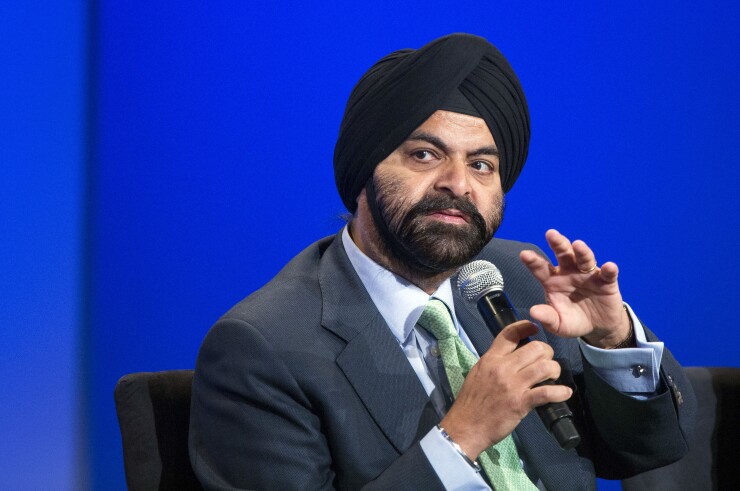Mastercard and Visa’s single online payment experience, which has angered some merchants and could shake up the e-commerce market from PayPal to Amazon, is progressing toward a 2019 launch.
“We’ll have a streamlined standardized online checkout,” said Ajay Banga, Mastercard's president and CEO, during the card network’s third-quarter 2018 earnings conference call on Tuesday, during which he addressed a single experience for online payments and India's tightening data regulations.

Some retailers, such as
The online button would also potentially threaten digital payment gateways at
EMVCo specifications have been finalized for SRC, and other guidance is being completed with rollout expected to start during the second half of 2019, Banga said, adding full deployment would take several years. Visa and Mastercard have contended SRC won’t preclude competition in e-commerce and mobile payment apps, and during Tuesday’s earnings call Banga said merchants, issuers and acquirers are part of the SRC process.
“[The] issuing, acquiring and merchant community will see value in this,” Banga said “There is currently clutter on checkout page. It’s harder for merchants or issuing or acquiring banks to handle multiple checkout options for digital and online purchases. The [stakeholders] are actually building this infrastructure the right way.”
Banga also defended Mastercard’s data management practices, saying demands for local storage from countries such as
“The more transactions you are taking, the more you can learn,” Banga aid. “If you localizing, you are unable to learn from one country to another. What India is doing is enabling those benefits to be turned off.”
For the quarter ending Sept. 30, Mastercard reported adjusted profit of $1.90 billion, or $1.82 per share; up from $1.43 billion, or $1.34 per share, in 2017’s third quarter. That’s better than Thomson Reuters’ analyst projection of $1.68 per share. The card brand’s revenue rose 14.7 percent to $3.90 billion from $3.40 billion the prior year. The performance was boosted by deals with Bank of America and co-branded card partnerships with Kroger and LL Bean.





